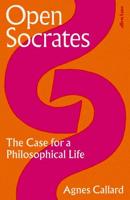Publisher's Synopsis
Plato's philosophy almost all riddled with ethical problems: in his dialogue addresses issues such as: the nature of the highest good, its implementation in the behavioral acts of people in society. Moral philosophy of Plato developed by "naive eudemonism" (Protagoras) to the idea of absolute morality (the dialogue "Gorgias"). In the dialogues of "Gorgias", "Theaetetus", "Phaedo", "Republic" Plato's ethics gets ascetic orientation: it requires a purification of the soul, free from worldly pleasures, full of sensual pleasures of social life. Man's task is to rise above the clutter (imperfect world of the senses) and all his soul to strive for assimilation to God, which is not in contact with anything evil ( "Theaetetus"); to free the soul of all flesh, to focus on its own, on the inner world of speculation and deal with the true and eternal only ( "Phaedo"). Plato characteristic of reconciling evdemonichekaya position, which is set out in the dialogues "Fileb" and "laws." In all the works of Plato refers to the existence of eros, the desire for the highest ideal of beauty and eternal fullness of being.










